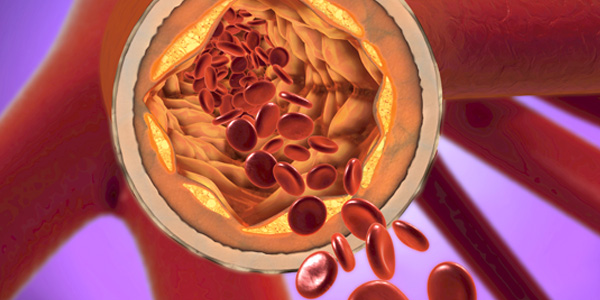You’ve probably been told to get your cholesterol numbers checked. But what exactly is cholesterol – and what should you be doing about it?

Get personalized, coordinated care across Northern California through the Sutter network.
View Patient ResourcesMake appointments, message your doctor and more through our patient portal.
Enroll NowAccess award-winning, comprehensive primary and specialty care for your whole family.
View All ServicesOur contributions to medical research and education lead to better healthcare outcomes.
Research at SutterJoin our robust training programs led by nationally known healthcare leaders.
Explore OpportunitiesExplore the ways we provide innovative, compassionate care through our network.
Learn About Sutter HealthShape the future of healthcare and build your career within our diverse teams.
Find Jobs
Get personalized, coordinated care across Northern California through the Sutter network.
View Patient ResourcesMake appointments, message your doctor and more through our patient portal.
Enroll Now
Make appointments, message your doctor and more through our patient portal.
Enroll NowAccess award-winning, comprehensive primary and specialty care for your whole family.
View All ServicesOur contributions to medical research and education lead to better healthcare outcomes.
Research at SutterJoin our robust training programs led by nationally known healthcare leaders.
Explore Opportunities
Join our robust training programs led by nationally known healthcare leaders.
Explore OpportunitiesExplore the ways we provide innovative, compassionate care through our network.
Learn About Sutter HealthShape the future of healthcare and build your career within our diverse teams.
Find Jobs
Shape the future of healthcare and build your career within our diverse teams.
Find JobsKnowing more about cholesterol can help you assess your risk for heart disease.
You’ve probably been told to get your cholesterol numbers checked. But what exactly is cholesterol – and what should you be doing about it?

Cholesterol is a waxy, fat-like substance within the human body, and it’s vital to many bodily functions. It also exists in certain foods we eat, particularly those from animals – meat, dairy products and eggs.
Cholesterol is natural and necessary — you can’t live without it. Too much cholesterol circulating in your bloodstream can ultimately clog the insides of your arteries, leading to a heart attack, stroke or blockages in the arteries of your legs. When combined with other risk factors such as smoking, high blood pressure, diabetes and a family history of heart problems, it can set the stage for heart disease.
Most people know in general that cholesterol is bad for them, and that it’s important to reduce your intake of salty foods, dairy and red meat. But discussions can become confusing when talking about the need to have high levels of “good” cholesterol in your system. Why are there two types of cholesterol and why should there be higher levels of one than the other?
By itself, cholesterol can’t dissolve in the blood. It moves through your body via two “packages” — high-density lipoproteins (HDL) or “good” cholesterol, and low-density lipoproteins (LDL) or “bad” cholesterol. Both are necessary, but when in an imbalance can pose risks to heart health.
Normally, LDL — which composes most of the cholesterol in your body — carries cholesterol through your bloodstream, passing through the tiniest blood vessels. An excess of LDL can lead to a buildup of plaques within your arteries. HDL helps to remove excess cholesterol from your body by carrying “bad” cholesterol to your liver for elimination.
Cholesterol levels are measured through a simple blood sample. The current recommended levels of cholesterol in the blood are:
Your doctor may recommend different targets for you based on your age and other risk factors. For example, in patients who have already had a heart attack, many cardiologists recommend getting the LDL level in the blood below 70 mg/dL.
Stay on top of your heart health by having a lipid panel done to measure cholesterol levels by the age of 35. After that, you and your doctor can set a screening schedule based on your measurements, family history and other risk factors.
Look up helpful health information.
Practical info for Sutter patients.
Online tools to help you make decisions about your health.
Check-ups, screenings and sick visits for adults and children.
Expertise and advanced technologies in all areas of medicine.
For serious accidents, injuries and conditions that require immediate medical care.
After-hours, weekend and holiday services.
Convenient walk-in care clinics for your non-urgent health needs.
We use cookies to give you the best possible user experience. By clicking 'Accept Cookies', you agree to the use of cookies. Privacy Policy Cookie Preferences